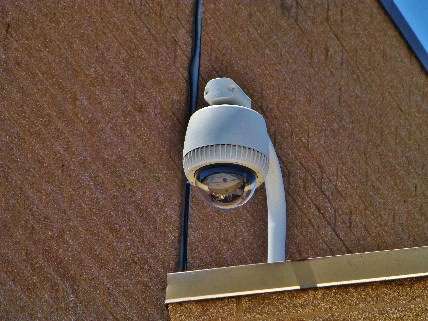NYPD's New Gunshot Detectors Record More Than Just Gunshots
ShotSpotter has successfully reduced police response time to crimes, but has little oversight in New York City.
Last week, New York City Mayor Bill de Blasio and NYPD Commissioner William Bratton announced the launch of ShotSpotter, a network of sensors that can pinpoint the exact location of a gunshot, which will be deployed in several high crime areas in the Bronx and Brooklyn. Bratton declared, "This gunshot detection system is going to do a world of good in terms of going after the bad guys."

There's strong evidence suggesting Bratton is correct. As Reason's Jim Epstein reported, ShotSpotter helped contribute to bringing crime-plagued Camden, NJ's "average 911-response time (down) from one hour to 90 seconds." Providing law enforcement with accurate information about crimes in progress is a far better use of resources than earlier systems that had cops stopping-and-frisking anyone in the vicinity of a shooting who roughly matched the description of a suspected perpetrator.
But there are growing concerns about how information recorded by ShotSpotter can be stored and used, particularly in New York City, where the City Council has yet to pass any legislation regarding oversight of the recorded material. Though, according to Fusion.net, Public Advocate Letitia James "has introduced a bill to the city council to require quarterly reports on the data."
ShotSpotter's website claims its microphones are not triggered by, "car doors slamming, people yelling "bang bang!", loud music, airplane engines, leaf blowers, cheering, highway noise, car engines revving, drag races or tires squealing," but WNYC reported that since 2010 in Newark, NJ, "75 percent of the gunshot alerts have been false alarms."
This is important because when ShotSpotter is triggered, it captures a few seconds of sound before and after the triggering moment. Though the microphones are as high as 100 feet above the ground, they have the ability to pick up intelligible conversations, which have been deemed admissible in court as part of several criminal cases around the country. In these cases, ShotSpotter has apparently contributed to solving violent crimes. But some civil libertarians are pushing back on handing the government a blank check to record incriminating conversations in public and use them to prosecute.
TakePart.com quotes Jay Stanley of the ACLU's Speech, Privacy and Technology Project as saying, "We are always concerned about secondary uses of technology that is sold to us for some unobjectionable purpose and is then used for other purposes."
We're not quite London yet, but ensuring police departments and city governments are transparent and limited in the scope of their use of ShotSpotter must be a priority for those who still value a free and open society. As my colleague Jim Epstein wrote, "It's incumbent on local police departments to be more open about how they're using the data they're collecting and to invite independent monitors to oversee their internal procedures."
Transparency will help ensure public confidence that the government is truly serving the interests of public safety, and not simply casting an indiscriminate surveillance net on anyone who dares to speak in public.


Show Comments (35)